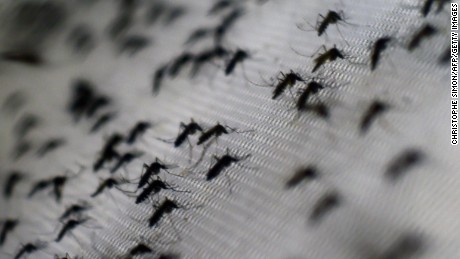Zika Virus: The World Reacts

February 12, 2016
The Zika Virus is a pathogen transmitted and carried by mosquitoes. Zika shares this highly dangerous form of transmission with West Nile virus, Malaria and Yellow Fever. The scientific community and the public have long regarded the virus as well-controlled. Yet in past weeks, waves of concentrated outbreaks have raised alarms. The outbreaks are mainly located in South America, predominantly in the northern half.
The virus itself does not have major effects on healthy adults. However, doctors say that if a woman becomes pregnant while infected with Zika, it can cause major health risks. The baby can be born with deformed features, and most commonly a smaller undeveloped head, also known as microcephaly. Currently, the diseases are extremely rare in the western world with only about 1,000 cases per year. The story is different south of the equator. Brazil has recorded 300 cases in less than one month.
As stated above, the virus is transmitted through mosquitoes. However, new research indicates that the virus can also be transmitted sexually from partner to partner. This profoundly increases the rate at which it can spread. The United States government and the CDC (Center for Diseases Control) have enacted travel bans on women from Southern American countries into the United States.
The virus sometimes does not have major symptoms with adults. But, it normally is accompanied by certain symptoms such as pain in recesses of the eyes, joints, and muscles; chills; sweating; eye redness; headache; skin rash; and vomiting. If a pregnant mother with the virus has a child, the child could suffer from microcephaly, which is the illness behind children being born with very small and underdeveloped heads, leading to smaller brains and issues with cognitive functions.
Since the virus is mainly affecting Southern America countries such as Brazil, the virus has become an epicenter there, and with the Olympics coming to the city in the summer of 2016, many men and women will be going to the events from around the world. The diseases are much more prone to spread and move towards new regions that are currently not affected by the Zika virus.
There is no solution or cure to the Zika virus. A vaccine has not yet been created. However, with the newly posed threat of the Zika virus, more funding and research is being used to discover more about the illness and possible cures. Some major research is being done by the CDC and the World Health Organization. The world’s leading medical researchers are investigating the Zika virus and, hopefully, a solution can be made soon.

